A lot of time and development goes into a great corporate training course, but the assessment phase is often one of the most neglected areas of the process. Learning consists of action and reflection, and assessment is an important part of the guided reflection that is needed for optimal learning.
The most important thing to remember with learning assessment is that it should measure the achievement of a carefully written, measurable learning objective.
Importance/Benefits of Assessments
We’ve written before about the “Magic Triangle” of learning used in instructional design to ensure overall effectiveness when designing a training course. The triangle consists of learning objectives, learning activities, and learning assessments.
Writing learning assessments correctly, and choosing the right type of assessment based on the learning activity, keeps the balance in your training courses and provides important feedback to L&D on the effectiveness of the learning materials included in the course.
Types of Learning Assessments
With the introduction of xAPI, it’s now possible to track more learning moments than ever before, both online and offline. A shift is also occurring from the traditional “test/quiz/score” approach to a more all-around measurement of a learner’s stage and individual needs to progress in their learning journey.
Types of assessment can include quizzes with the traditional question types such as multiple-choice, true/false, fill in the blanks, and matching. Other learning activities such as social learning, peer-to-peer interactions, and on-the-job learning can also be tracked to give a more complete picture of the learner’s progress.
Summative Vs Formative Assessments
Education experts tend to divide assessment types into two categories: summative and formative.
Summative assessment usually quantifies results on a graded basis (e.g. 8/10 is considered a “pass”). This method is often criticized for being too simplistic and arbitrary to truly evaluate the learners’ achievement or the effectiveness of the training material. However, these downsides can be mitigated with effective pre-testing and post-testing.
Formative assessment seeks to measure the learning journey as opposed to hard and fast results at the end of a course. It can be more qualitative and provide unique insights and a “bigger picture” mentality to assessing an individual’s learning journey.
Creating Effective Learning Assessments
There are several factors that you should examine when considering your learning assessment practices:
Do you conduct pre-tests or post-tests?
Pre-tests determine a learner’s knowledge level before taking the course. Post-tests can reveal the progress they made in their knowledge as a result of taking the course.
How often do you assess your learners?
Best practice is little and often throughout the course. This is the best way to assess a learner’s progress and absorption of the material.
How do you assign a “score” to the learning outcomes?
Too often, summative assessments with an arbitrary pass rate are used to define a learner’s performance on the course. This can have the effect of frustrating your learners and impacting their motivation to learn. Instead, L&D should be examining low scoring courses to assess the effectiveness of the course design.
Are the assessments the correct level of difficulty?
Learner engagement should always be top of mind for L&D, and nothing disengages a learner faster than an assessment that is either too easy or too difficult. Assessments should guide the learner’s reflection on the subject in a useful way without being pointlessly challenging.
Are the assessments practical and useful?
Tactics like trick questions or the “obvious answer” multiple-choice questions often serve only to alienate the learner from the experience. Assessments should be kept simple, straightforward and progress the learner logically through the course. Even the most knowledgeable learners can be tripped up by unclear instructions or confusing questions.





